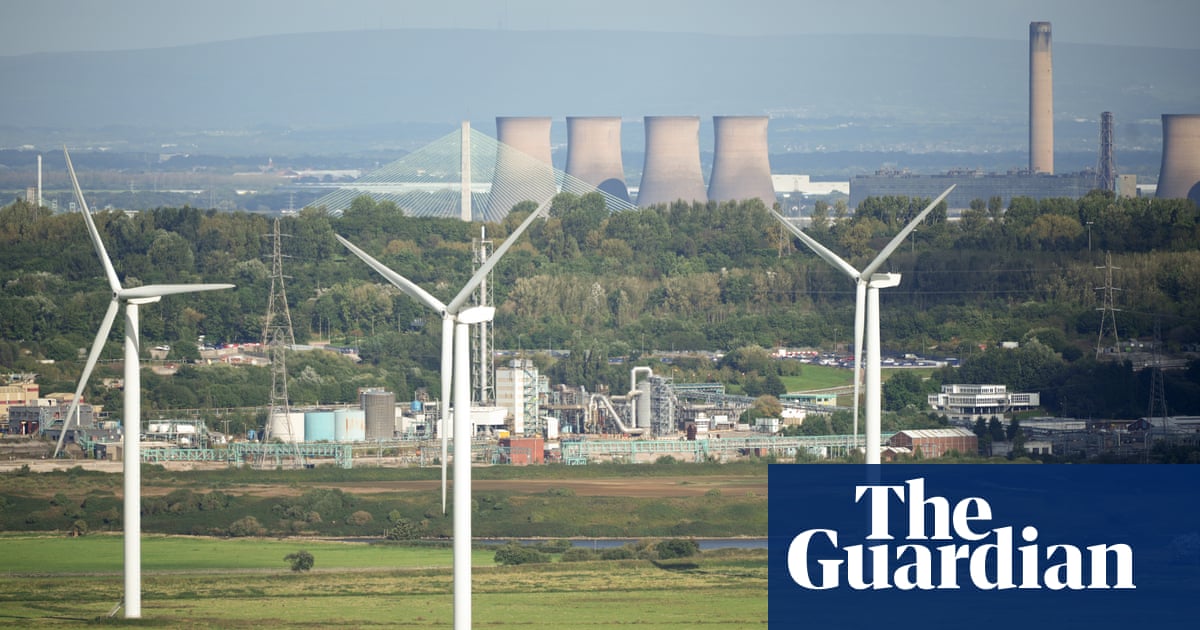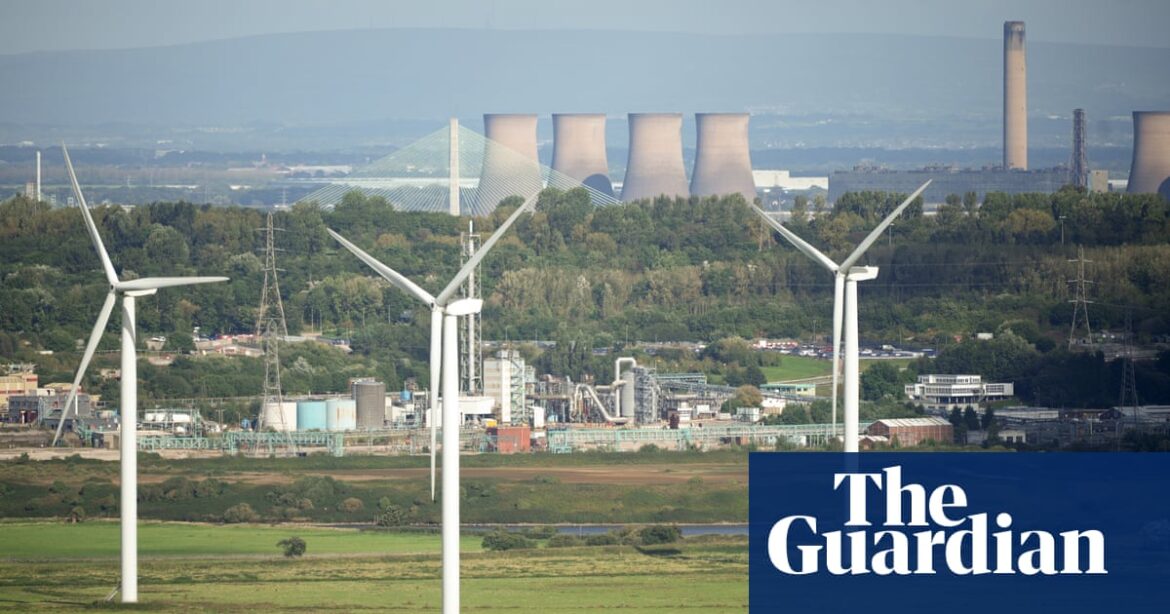
The UK’s gas and coal power plants produced 20% less electricity last year, and the usage of fossil fuels was at its lowest point since 1957.
The last time the UK saw such low usage of coal and gas was during Harold Macmillan’s term as prime minister and when John Lennon and Paul McCartney of the Beatles first met.
According to a report from Carbon Brief, gas power plants in the UK produced 31% of the country’s electricity in the previous year, equivalent to 98 terawatt hours (TWh). Meanwhile, the sole remaining coal plant in the UK only generated enough electricity to fulfill 1% of the country’s power needs, amounting to 4TWh.
The increasing use of renewable energy and higher imports of electricity from France and Norway, as well as a decrease in demand, have pushed fossil fuels out of the electricity system.
Last year, the increase in imported power was primarily due to an uptick in nuclear power from France and hydropower from Norway in 2023. This was a change from the previous year, 2022, when power outages in France caused the UK to become a net exporter of electricity for the first time.
According to Carbon Brief, in 2023, gas and coal power plants accounted for slightly more than one-third of the UK’s electricity supply, while renewable energy provided the largest share of power to the grid at a historic high of 42%.
In the past decade, renewable energy sources such as wind, solar, hydro and biomass have surpassed fossil fuels for the third time, according to the study. The combined contribution of renewables and nuclear power in Britain accounted for 13% of electricity production in 2023, resulting in low-carbon electricity making up 55% of the country’s total electricity.
RenewableUK’s CEO, Dan McGrail, stated that the information indicates the significant role that wind, solar, and other clean energy sources are consistently playing in Britain’s transition to cleaner energy.
McGrail stated that they are collaborating with the government to increase the speed of constructing new projects and establishing new supply chains. This is in response to the intense global competition, as many are attempting to imitate their achievements.
According to Carbon Brief, the amount of electricity generated from fossil fuels in 2023 was significantly lower, by two-thirds, than its highest point in 2008. Their findings show that coal usage has decreased by 97% and gas by 43% in the past 15 years.
By 2024, coal power is predicted to decrease even more due to the scheduled closure of Britain’s last remaining coal plant, Ratcliffe on Soar, which is owned by German company Uniper. This plant has been producing power for 24 years and is set to shut down before the next winter season.
Skip over the advertisement for the newsletter.
after newsletter promotion
Since 2008, the UK has seen a sixfold increase in renewable energy thanks to the construction of additional wind and solar farms, as well as the conversion of some generating units at the Drax coal plant to burn biomass pellets.
According to the data, electricity usage has decreased by 22% since its highest point in 2005. This is due to a long-term pattern influenced by more energy-efficient homes and appliances, as well as a decrease in the manufacturing sector in the UK.
Electricity demand is predicted to increase twofold as the UK strives to reduce emissions to net zero by 2050, as the strategy heavily depends on substituting fossil fuel-based transportation and heating with electric options.
In the past few weeks, companies building offshore wind turbines have approved the construction of four more wind farms in UK waters. This includes Hornsea 3, which will be the biggest offshore wind farm in the world and will be located off the coast of North Yorkshire by Ørsted, a Danish company.
The German utility RWE has also agreed to buy the Norfolk Boreas, Norfolk Vanguard East and Norfolk Vanguard West from Sweden’s Vattenfall in a €1bn deal that is expected to revive plans for the projects, which were derailed last year by rising supply chain costs.
Source: theguardian.com



